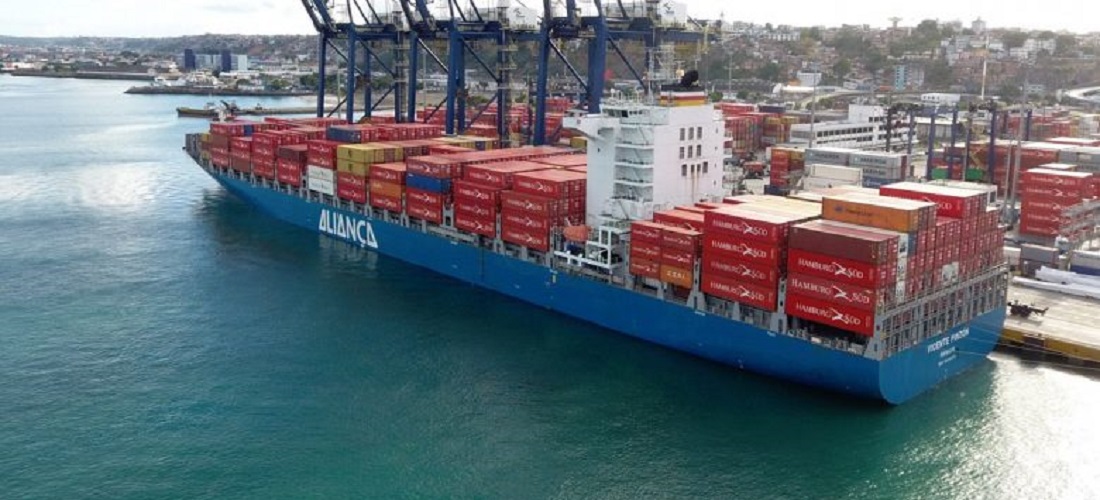
Government acts on pressure to finalize BR do Mar regulation
Jul, 17, 2023 Posted by Gabriel MalheirosWeek 202329
A year and a half after being enacted, Brazil’s BR do Mar Law, which establishes the Maritime Cabotage Stimulus Program, has not yet gone through regulation by the federal government. The measure is awaited by the port sector and is necessary to make effective the benefits of the text enacted on January 7, 2022. The proposal for legal regulation is being processed at the Ministry of Ports and Airports and, as soon as it is ready, will be sent to the Chief of Staff Office [Civil House] of the Presidency of the Republic. However, there is still no date for this.
In a statement to the press, the Ministry of Ports and Airports reported that consultations were held “with the main players and users of maritime cargo transport” in the first half of the year to identify points to be improved. “The technical area of the National Secretariat of Ports and Water Transport has already concluded the analysis of the contributions, and the regulation’s text is now being processed within the Ministry, to be sent to the Civil House.”
The ministry highlighted in the same statement that “the improvement of public policies, to potentiate the development of maritime cabotage, is among the priorities.” It is a consensus among experts that navigation between national ports needs to be stimulated for the benefit of the national logistics chain.
For the executive director of the São Paulo State Maritime Navigation Agencies Syndicate (Sindamar), José Roque, the delay in regulating cabotage is worrying. “Sindamar sees with great concern the delay in the approval of BR do Mar, which has been dragging on since the previous government, with various political interferences, with various suggestions, but without practical results so far.”
Roque observed that the volume in cabotage has increased considerably, and this can be seen by the growth of vessel calls in Santos, highlighting that it is a safer freight mode, with a minimal chance of cargo being damaged or stolen. The executive director also explained that the shipowners who operate in cabotage have already met with the Federal Government and presented suggestions for BR do Mar to take off.
“Cabotage should benefit from more tax incentives to reduce costs, strengthening Santos as a major port hub, as well as reducing port tariffs. There is enough cargo out there for this to become a reality. The shipyards will be able to receive new orders from national shipowners and generate thousands of jobs with the approval of BR do Mar. Unfortunately, there is too much slowness in the decision-making process by the Federal Government.”
Port consultant Frederico Bussinger commented that, depending on the regulation, BR do Mar can solve some of the bottlenecks that hinder even more significant growth in cabotage.
“Speaking of the importance of cabotage in a country with 8,000 kilometers of coastline is a waste of time. Cabotage has been expanding vigorously since the late 1990s: it grew at Chinese rates in several years of that period; 6% on average in the last five years, including and particularly in containers. In 2022, there were already 203 million tonnes, equivalent to one-sixth of the movement of Brazilian ports,” he commented.
Master in Maritime Law lawyer Larry Carvalho, also commented that “the whole market is awaiting the legal regulation of BR do Mar,” explaining that the text has no application of its own without regulation.
“The law must be regulated so Brazilian shipowners can enjoy the benefits associated with the BR do Mar program. Brazilian cabotage has been a restricted market for years. The flexibilization and the entry of new players are essential for its development.”
-
Ports and Terminals
Jan, 10, 2022
0
Portonave starts the year featuring new service
-
Grains
May, 26, 2021
0
High commodities boost global trade
-
Shipping
Apr, 28, 2021
0
Brazilian government downgrades BR do Mar urgency status in congress
-
Grains
Sep, 28, 2023
0
Brazil: soy exports expected to total 99 million tonnes in 2024

